Advertisements
Do you already wonder about your family's roots and want to know more about your ancestors? Digital genealogy has revolutionized the way we research our family history.
With modern mobile applications, you can now explore your genealogical archive from any place, at any time. These technological tools allow you to connect with your past and find relatives who you may not know exist.
Advertisements
In this article, we will explore how these applications can help you. to discover new relatives and preserve your family history for future generations.
The fascinating world of digital genealogy
Digital genealogy has revolutionized the way we explore our origins. Now you can discover and organize your family history intuitively and easily on any device.
Advertisements
Searching for our origins is a fascinating journey that connects us with our past and helps us better understand who we are. But why is it important to research our genealogy?
Why look for our origins?
Investigating our origins allows us learn about our family history and understand how our roots influence our identity. By exploring your genealogical tree, you can discover traditions, costumes and historical events that have shaped your family.
- Discover your roots and better understand your cultural heritage.
- Connect with distant friends and expand your family network.
Benefits of using genealogy applications
Genealogy applications offer various benefits for those seeking to discover their descendants and explore their genealogical tree. Some advantages include:
- Organize and visualize your genealogical tree intuitively.
- Automate investigations with “clues” based on thousands of digitized records.
- Collaborate with other family members in real time.
- Store documents and photos in one place.
- I am in contact with distant relatives who are also investigating our own family relationships.
How do the applications work to discover descendants?
Genealogy applications will revolutionize the way we explore our origins. These digital tools make it easier to search for information about our ancestors, allowing us to build a detailed genealogical tree.

Technology behind genealogical research
The technology behind these applications is impressive. They use advanced algorithms and huge databases to connect users to historical records and relevant documents. Some applications also incorporate video content to offer a richer experience.
These platforms allow users to access a wide range of digitized records, facilitating genealogical research.
Types of information you can find
Genealogy apps offer access to a variety of records and documents. Some of the types of information you can discover include:
- Digitized civil records, such as birth, marriage, and death certificates.
- Historical censuses revealing details about family composition and occupations.
- Military records that provide information about your ancestors' service.
- Immigration and naturalization documents that help track migration movements.
- Old newspapers with obituaries, wedding announcements, and news related to your ancestors.
- Church records including baptisms, marriages, and burials.
By using these apps, you can gain a more complete view of your family history.
The best apps to create your family tree
In the digital age, family tree apps have revolutionized the way we research our family history. These tools allow us to access vast historical records and easily connect with distant relatives.
Ancestry.com
Ancestry.com is one of the most popular platforms for genealogical research. It offers access to millions of historical records, including censuses, civil records, and family trees created by other users.
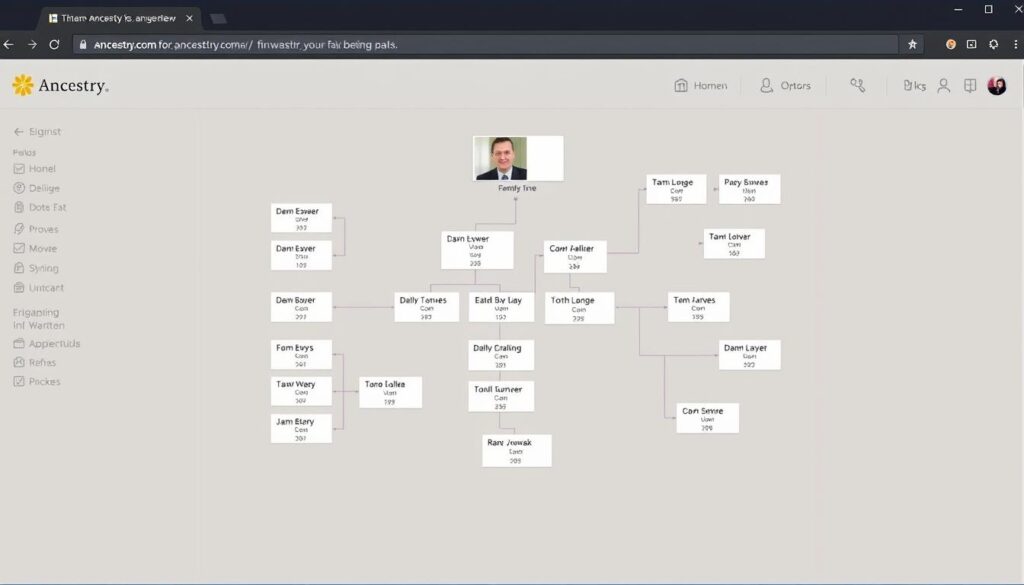
MyHeritage
MyHeritage is another notable app that allows users to create and manage their family trees. It offers a wide range of research tools, including the ability to sync your tree with other users.

FamilySearch
FamilySearch is a free application that offers a vast collection of digitized genealogical records. It's an excellent tool for those looking to research their family history without incurring additional costs.
- FamilySearch is completely free and supported by The Church of Jesus Christ of Latter-day Saints.
- Use a global collaborative family tree where all users work on the same shared tree.
- Access to billions of digitized historical records at no cost.
- The “Memories” feature makes it easy to preserve family photos and documents.
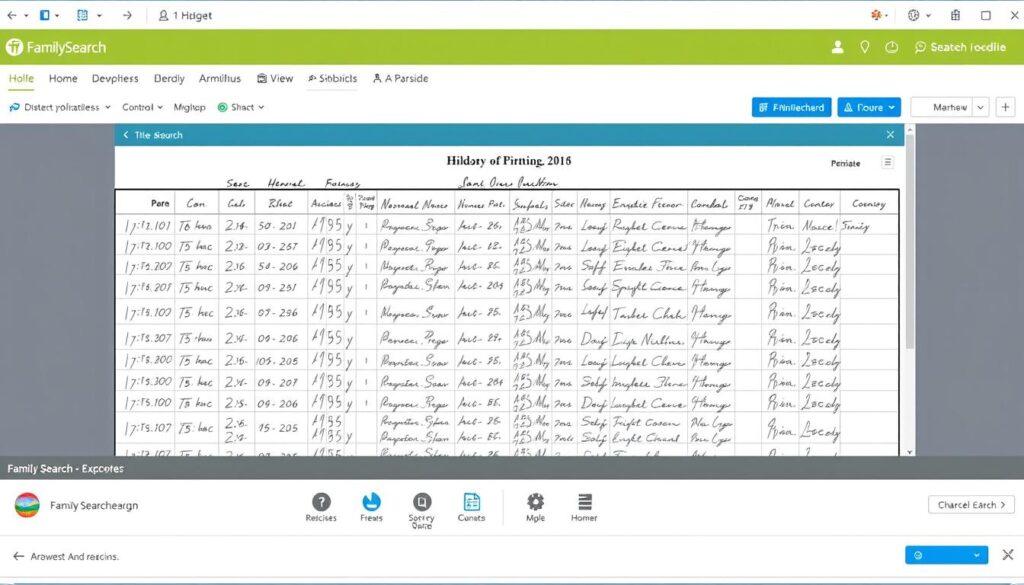
Specialized applications in DNA analysis
Genealogy has found a powerful ally in specialized DNA analysis applications. These tools are revolutionizing the way we research our family history, providing valuable information that complements historical records and helps us discover new facts about our ancestors.
DNA Painter
DNA Painter is an innovative tool that allows you to effectively visualize and analyze your DNA results. With this app, you can:
DNA Painter helps you organize and understand your DNA matches, making it easier to identify common ancestors and connect with distant relatives.
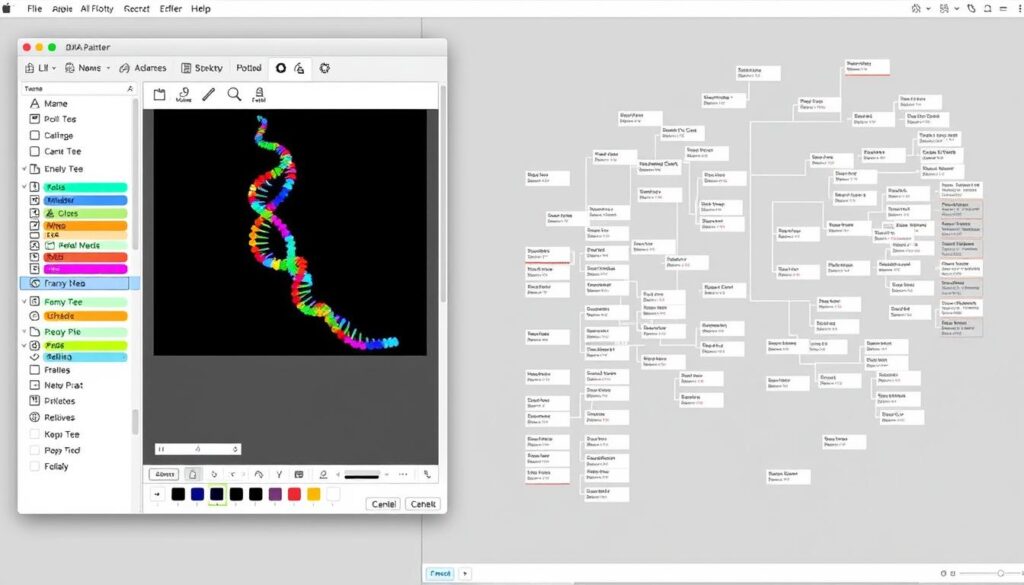
Integrating DNA results into your family research
Integrating DNA results into your traditional genealogy research can help you overcome "brick walls" or dead ends in your family tree. Some of the key benefits include:
- Confirm or refute documented family relationships through biological evidence.
- Target your research to specific geographic regions based on ethnicity results.
- Connect with distant relatives who have previously unknown family information, photographs, or documents.
- Use different types of DNA tests (autosomal, mitochondrial, Y chromosome) to answer specific questions about different family lines.
By combining DNA results with your genealogical research, you can enrich your family tree and discover new secrets about your ancestors. See a video explanatory can help you better understand how to integrate these results into your research.
Complementary tools for your genealogical research
There are several tools that can help you organize and deepen your genealogical research. These tools can significantly improve your ability to discover and analyze information about your ancestors.
Evernote to organize your research
Evernote is a versatile tool that allows you to effectively organize your notes and research documents. You can create notebooks and notes to categorize and store information about your ancestors, including important dates, places, and events.
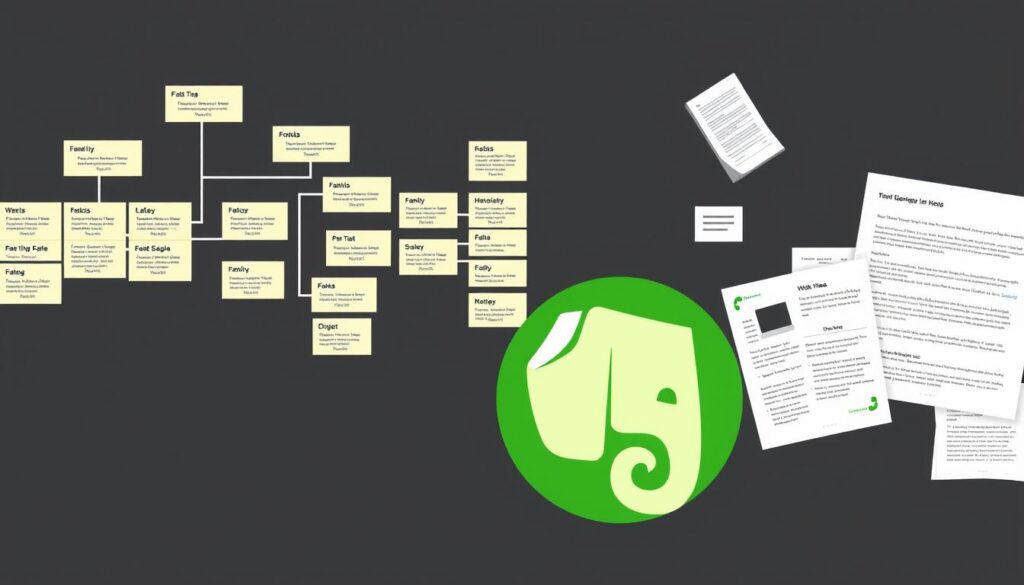
Google Translate for international research
Google Translate is an invaluable tool when researching genealogy internationally. You can translate documents and websites from one language to another, making genealogical information easier to understand in different languages.

Notion for genealogical databases
Notion is an all-in-one tool that combines the functions of a database, notepad, and virtual whiteboard. It's ideal for organizing complex genealogical research. You can create custom databases to record and categorize information about your ancestors, and link related pages for easy navigation.
- Notion is a versatile tool that combines database, notepad, and whiteboard functions, ideal for organizing complex genealogical research.
- You can create custom databases to record and categorize information about your ancestors, including dates, locations, relationships, and sources.
- The collaboration feature allows multiple family members to work simultaneously on the same genealogical database.
- Notion automatically syncs across devices, allowing you to access your research from anywhere.
For more information on genealogical research tools, you can consult the study available at this link.

Applications to discover cemeteries and graves
In the digital age, mobile apps have made it easier for genealogists to search for cemeteries and graves. These tools allow users to locate and document crucial information for their genealogical research.
Find a Grave
Find a Grave is a prominent app that allows users to search cemetery and grave records. With its extensive database, you can search by name, year of birth and death, and cemetery location.
To search for an ancestor, simply tap “Search for a Memorial” on the home screen, enter known information, and review the matching results. Although the search function is simple and doesn't support wildcards or search operators, you can try variations of the name and information to get results.
How to document finds in cemeteries
Properly documenting your cemetery visits is crucial to keeping an accurate and useful record for your genealogical research. Before visiting a cemetery, prepare a kit with a camera, notebook, soft brush for cleaning headstones, a mirror to reflect light off hard-to-read inscriptions, and tracing paper.
- Photograph each tombstone from multiple angles and with different lighting conditions to capture all the details of the inscriptions.
- Record the exact location of each grave using GPS or cemetery maps, which will facilitate future visits or sharing the location with other researchers.
- Transcribe the complete inscriptions, including epitaphs, symbols and any additional information that may be of genealogical relevance.
- Document nearby graves, as they could belong to relatives not previously identified in your research.
- Organize your findings in a digital database, linking them to the corresponding people in your family tree.
Free vs. Paid Apps: Which Should You Choose?
When exploring genealogy apps, one of the first decisions you'll make is whether to opt for a free or paid version. This choice largely depends on your specific needs and goals for your family tree research.
Advantages of the free versions
Free versions of genealogy apps are a great starting point, especially for those just beginning their research. These versions typically offer basic features that allow you to create a family tree and begin exploring your roots. For example, some free apps allow you to access public records and connect with other researchers.
Additionally, the free versions allow you to familiarize yourself with the app's interface and tools without any financial commitment. This is particularly useful for those trying out different platforms to see which one best suits their needs.
When is it worth investing in a premium version?
If you're serious about genealogy research and are willing to delve deeper into your roots, a premium version may be worth considering. Paid versions offer several significant benefits that can substantially improve your research experience.
- Access to exclusive records not available in the free versions.
- Advanced search tools to find specific records with greater precision.
- More sophisticated suggestion systems to speed up your research.
- Unlimited storage for photos, documents, and other media.
Additionally, premium versions often include advanced printing and publishing features, allowing you to create large-format family trees and personalized family books. Priority technical support is also a significant benefit, providing assistance when you need it.
| Feature | Free Version | Premium Version |
|---|---|---|
| Access to exclusive records | No | Yeah |
| Advanced search tools | Limited | Yeah |
| Media storage | Limited | Unlimited |
| Priority technical support | No | Yeah |
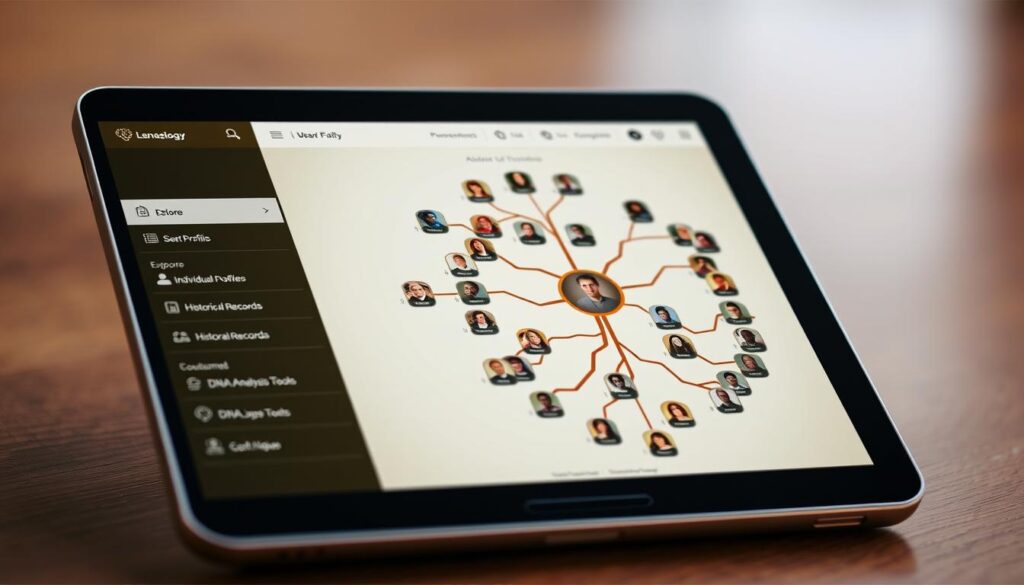
Ultimately, the decision between a free and paid version will depend on your specific needs and the level of detail you want to achieve in your genealogical research.
Tips to maximize your experience with the app to discover descendants
To get the most out of genealogy apps, it's crucial to follow some practical tips. By organizing your data and collaborating with other researchers, you can enrich your family tree and discover new ancestors.
Organization of data and findings
Organization is key in genealogical research. Use tools like Evernote either Notion to catalog your findings and keep an organized record of your sources. This will allow you to quickly access information and avoid duplication of efforts.
| Tool | Description | Benefit |
|---|---|---|
| Evernote | Organizing notes and sources | Quick access to information |
| Notion | Customizable database | Flexibility in the organization |
Collaboration with other family researchers
Collaboration can multiply the effectiveness of your research. Use collaboration resources in applications like Ancestry , MyHeritage or FamilySearch to invite relatives to contribute to your genealogical archive.
- Participate in Facebook groups or specialized forums to connect with other researchers.
- Share your discoveries selectively to attract potential parents or researchers with similar interests.
- Establish clear rules for editing and modifying data to maintain the integrity of your research.
Conclusion
With the right tools, exploring your genealogical tree becomes an enriching experience. Applications to discover descendants will revolutionize the way we explore our family history, democratizing access to historical records and simplifying complex research processes.
Some two main benefits include:
- Combining traditional search technologies with DNA analysis for a more complete perspective.
- Options free and paid to meet a variety of needs and accessories.
- The importance of meticulous organization of dice and collaborate with other researchers.
- The opportunity to reconstruct the life stories of your ancestors and better understand your own identity.
By preserving your family's history through these applications, you will create a valuable legacy for future generations. Genealogical research is a continuous journey that can be constantly enriched with new discoveries and connections.




